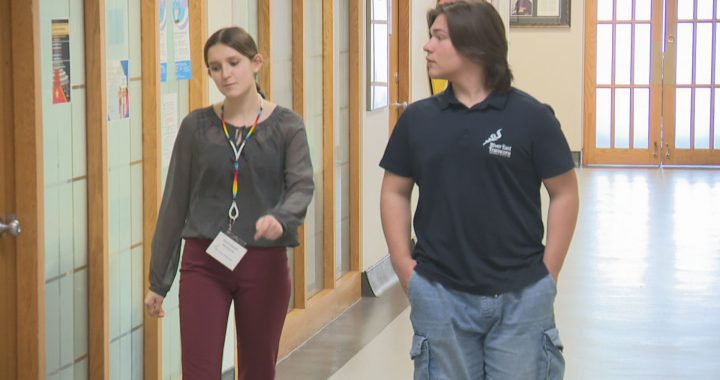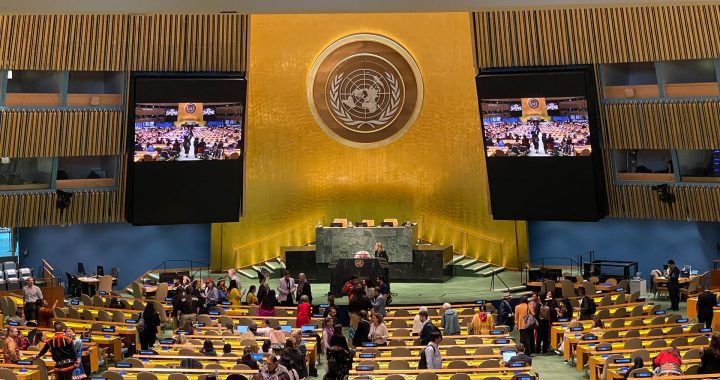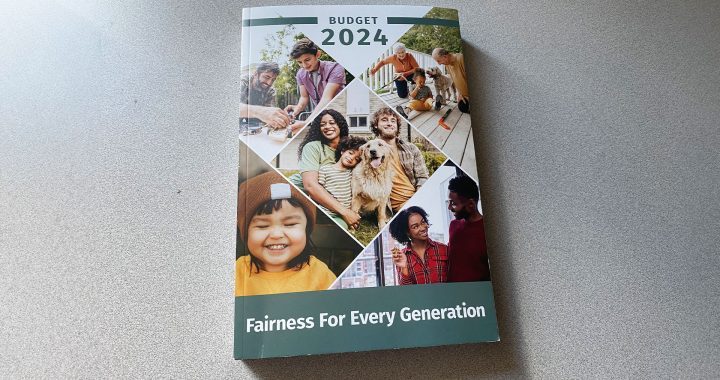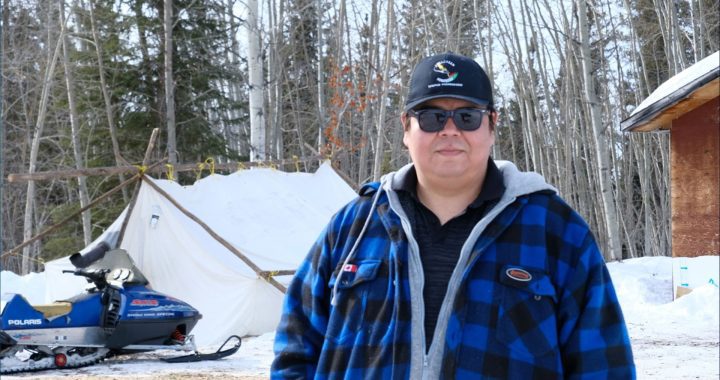Community health groups across the country are joining forces to educate Indigenous communities on HIV and AIDS as part of this year’s Aboriginal AIDS Awareness Week.
More than 10 cities and Indigenous communities are hosting events to promote HIV testing.
This follows World AIDS Day, which takes place on Dec. 1 each year.
Messages of love and support were displayed in the Neeginan Centre in Winnipeg Monday morning.
Quilt patches read, “you are loved,” and “always have hope.”
These are words Christine Bibeau needed to hear a decade ago when she tested positive for HIV.
She said the first year was the hardest.
“Mostly it was self-stigma like just these ideas I had about myself that I would never fall in love, I would never meet anybody, I would never have sex again,” Bibeau told APTN News.
“[But] I went on to live well.”
Bibeau is now a mother of three. She had her children after she tested positive and they are all HIV-negative. She credits this to advancements in medication available for people living with HIV.
“You can go on and live a regular life and it’s not a death sentence anymore. It’s just moving forward,” said Bibeau.
The 38-year-old is now a peer support worker with Nine Circles Community Health Centre.
They are one of the organizations taking part in Aboriginal AIDS Awareness Week across the country.
This year’s theme is called “Communities make a difference.”
Bibeau is on hand to provide support for people getting tested.
“Part of it is paying it forward to other people living with HIV and being able to help in research anywhere I can,” said Bibeau.
There were 107 new cases of HIV in Manitoba last year. This is up from 90 in 2017. Approximately half of those identified as Indigenous.
Monica Cyr is the director of primary care for the Aboriginal Health and Wellness Centre of Winnipeg Clinic.
She said there is still a lot of stigma for Indigenous patients when it comes to accessing healthcare.
“As healthcare providers we need to figure out how we can best unpack our own biases, conscious or unconscious, and have that discussion without judgment attached,” said Cyr.
“The better we get at having those conversations the more people we’re going to test and that’s public health. That’s keeping everybody safe.”
Cyr adds it’s about creating a respectful environment with access to testing and supports.
During Monday’s event attendees had access to free HIV testing, presentations from individuals in the medical field as well as community supports.
These are not always available due to cuts in provincial and federal funding said Bibeau.
She would like to see more social gatherings for people who are HIV positive, “that’s important for people who are newly diagnosed to come out and see that there are others living and they are living well.”
At a national level, according to a report released in 2018 from the Public Health Agency of Canada, there were 2,402 new cases of HIV in Canada, this was up three per cent from the previous year. Approximately 20 per cent of those were Indigenous people, who make up nearly five per cent of the national population.









